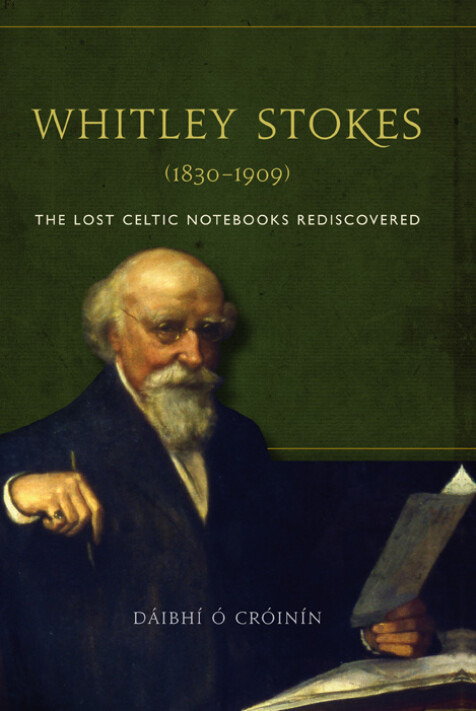Whitley Stokes (1830–1909)
The lost Celtic notebooks rediscovered
Dáibhí Ó Cróinín
'Ó Cróinín came across [Stokes’] long forgotten notebooks in the University of Leipzig where they had been since 1909. He has edited them, compiled a detailed bibliography of Stokes’ publications and supplied the text of some of Stokes’ translations. This constitutes a unique insight into the over fifty years of research conducted by Stokes, enabling scholars to follow the course of his work and the development of his ideas over the decades', Books Ireland (September 2011).
‘Whitley Stokes (1830–1909) was one of the most important and prolific Celtic scholars of his times, even though his professional career was in law ... Ó Cróinín's introductory essay succinctly surveys Stokes’s life and career, and also provides a scenario for how the notebooks ended up in Leipzig … the core of the volume is Ó Cróinín’s catalogue, which supplies details of the notebooks’ contents, of the date and place of the transcripts and of later collations against the manuscripts, but also of subsequent publications … Mention should also be made of the thirty plates, most of them pictures of Stokes and contemporary Celticists, which considerably add to the historiograhpical flavour of the volume … an important contribution to the historiography of linguistics and of Celtic Philology … analysing and contextualizing from different archival and critical perspectives the life and the achievement of a founding father of medieval Celtic textual philology', Erich Poppe, Language and History (May 2012).
'A bonus to the publication are the 26 photos of Stokes and his contemporaries that have been beautifully printed … The discovery of Stokes’ notebooks indicates that with the necessary research, or through sheer coincidence, a lot of valuable material can still be found', Bart Jaski, Kelten (February 2012).

